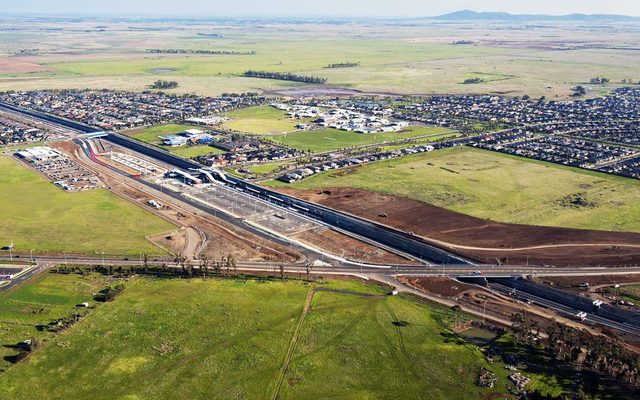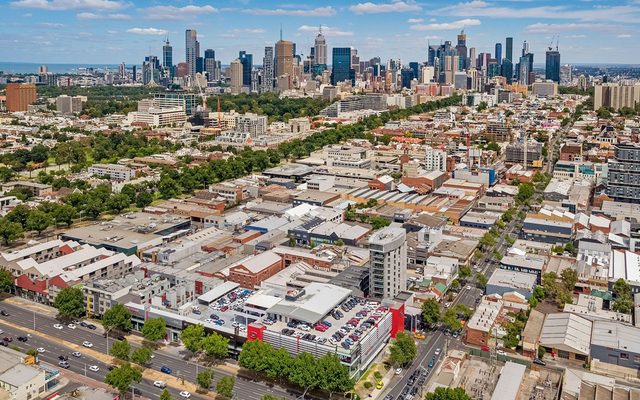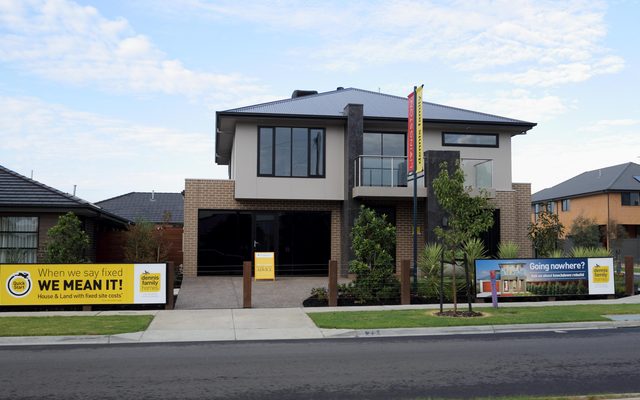This article is from the Australian Property Journal archive
WANING sentiment in the office market dragged down NAB’s June quarter Commercial Property Index, as Queensland emerged as the most optimistic state and Victoria the least, while the growing economic uncertainty and higher interest rates mean the number of developers starting new buildings are below levels seen at the height of COVID uncertainty.
Commercial property market sentiment, as measured by the Index, continued to languish in quarter, with the Index inching down to -7 points from -6 points in the previous quarter and printing below the long-term survey average (-2 pts). A score of 0 is considered neutral.
By sector, sentiment remains elevated and lifted further in the bouncy CBD Hotel sector, which was up to 38 points, as property professionals reported a big uplift in RevPAR (revenue per available room) growth and solid occupancy rates.
After significantly out-performing since late-2020, the industrial index is starting to “normalise”, falling to a two-and-a-half year low 26 points, though still well above average levels as capital values and rents continue to grow on the back of structural tailwinds.
The office index fell quite sharply down to -28, with property professionals reporting lower capital and rental growth.
The retail index bounced but was still very weak at -17 pts, amid rising economic headwinds and sluggish consumer spending.
Commercial property confidence levels eased during the quarter, with the 12-month measure falling to -3 and the two-year measure to 11. Short-term confidence levels are highest among property professionals operating in CBD Hotels (25) and industrial (22), and lowest in the office sector (-18).
Longer-term confidence levels are highest for Industrial property (30), ahead of office (10) and retail (3).
Queensland was the only state to record positive sentiment (8), while Victoria recorded the weakest sentiment by a big margin (-22). Property professionals in Western Australia (14) and Queensland (12) are most confident about market conditions next year, and Victoria least so (-12).
Queensland most confident
Queensland is the only state with positive confidence readings for all market sectors in the next 12 months. Victoria was the only state with a negative confidence print in the next two years (-4) and the only state to print negative in all market sectors, particularly office (-25 pts).
Capital growth expectations are highest for industrial property in the next one to two years (0.8% and 1.4% respectively), with prospects highest in NSW (2.3% and 3.3%) and lowest in Victoria (-1.2% and -1.9%). Expectations for CBD hotel values were scaled back and now expected to fall (-1.3% and -4.9%). The overall outlook for retail is basically unchanged (-2.7% and -1.5%), with values falling in all states bar Western Australia in two years’ time (2.3%).
As the sector faces a reckoning on values, the outlook for offices was also cut further (3.4% and 1.5%) and falling in all states next year (from -2.1% in Queensland to -5.1% in Victoria). Queensland is the only state where values are expected to grow in the next two years (0.6%) with the biggest fall predicted in Victoria (-3.6%).
National office vacancy eased from 9.9% to 9.6% but is still trending above average (8.5%). Vacancy was reportedly lower in all states in the June quarter and remained highest in Western Australia (11.9%) and Victoria (11.3%) and lowest in NSW (8.2%).
Retail vacancy rose modestly to 7.0% but ranged from 13.7% in South Australia/Northern Territory to 5.9% in Queensland. The national industrial vacancy rate remained steady at a survey low 2.8%, with very low vacancy levels reported in all states ranging from 2.3% in NSW to 4.0% in South Australia/NT.
Office rental markets expected to remain under pressure in the next 12 months, and incentives elevated, with average rents expected to fall by 0.1%, before moderately positive returns in two years’ time (0.7%). Queensland is expected to outperform all states for income growth in the next one to two years (3.6% in both), with Victoria again the clear under-performer (-3.0% and -1.9%).
Property professionals are a little more buoyant about retail rents, now tipped to decline more modestly (-0.4% and -0.1%), with positive returns forecast in all states bar NSW (-1.5% and -1.6%) and Victoria (-1.5% and -0.6%). Structural undersupply and strong demand continue to underpin a positive outlook for industrial rental growth (2.5% and 2.0%), and in all states led by NSW (3.2% and 2.5%).
Construction slowdown
The June quarter survey findings reinforce the continuing slow-down seen in construction and building approvals data, with the number of property developers expecting to start new building works in the next six months falling to a survey low 26%, from 33%. A further 37% are planning to start within six to 18 months, while a record low 63% of developers now plan to start within the next 18 months – below the previous low set during the height of COVID uncertainty in mid-2020 (68%).
NAB’s survey results also showed a lower number of developers planning to start new building works in the residential sector, down from 51% to 47% and a below-average 10% are targeting office and retail, while an above-average one in five developers are looking to start new works in industrial.
The net number of property professionals who said it was harder to obtain debt to fund their businesses improved but remained elevated at -34%, down 20% at the same time last year. The number who found it harder to get equity funding inched up to -27%, almost doubling from -14% at the same time last year.
More property professionals believe debt funding conditions will worsen over the next three to six months (-37%), with the net number expecting equity funding conditions to be worse also higher (-31%). This would make both debt and equity funding harder than at any time since early 2019.




